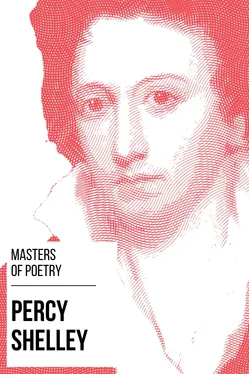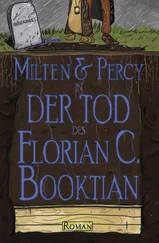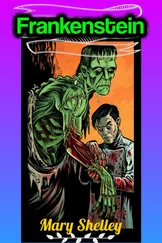In another place Hogg gives some details which complete the impression of Shelley's personal appearance, and which are fully corroborated by Trelawny's recollections of a later date. "There were many striking contrasts in the character and behaviour of Shelley, and one of the most remarkable was a mixture, or alternation, of awkwardness with agility—of the clumsy with the graceful. He would stumble in stepping across the floor of a drawing room; he would trip himself up on a smooth-shaven grass-plot, and he would tumble in the most inconceivable manner in ascending the commodious, facile, and well-carpeted staircase of an elegant mansion, so as to bruise his nose or his lip on the upper steps, or to tread upon his hands, and even occasionally to disturb the composure of a well-bred footman; on the contrary, he would often glide without collision through a crowded assembly, thread with unerring dexterity a most intricate path, or securely and rapidly tread the most arduous and uncertain ways."
This word-portrait corresponds in its main details to the descriptions furnished by other biographers, who had the privilege of Shelley's friendship. His eyes were blue, unfathomably dark and lustrous. His hair was brown; but very early in life it became grey, while his unwrinkled face retained to the last a look of wonderful youth. It is admitted on all sides that no adequate picture was ever painted of him. Mulready is reported to have said that he was too beautiful to paint. And yet, although so singularly lovely, he owed less of his charm to regularity of feature or to grace of movement, than to an indescribable personal fascination. One further detail Hogg pointedly insists upon. Shelley's voice "was excruciating; it was intolerably shrill, harsh and discordant." This is strongly stated; but, though the terms are certainly exaggerated, I believe that we must trust this first impression made on Shelley's friend. There is a considerable mass of convergent testimony to the fact that Shelley's voice was high pitched, and that when he became excited, he raised it to a scream. The epithets "shrill," "piercing," "penetrating," frequently recur in the descriptions given of it. At the same time its quality seems to have been less dissonant than thrilling; there is abundance of evidence to prove that he could modulate it exquisitely in the reading of poetry, and its tone proved no obstacle to the persuasive charms of his eloquence in conversation. Like all finely tempered natures, he vibrated in harmony with the subjects of his thought. Excitement made his utterance shrill and sharp. Deep feeling of the sense of beauty lowered its tone to richness; but the timbre was always acute, in sympathy with his intense temperament. All was of one piece in Shelley's nature. This peculiar voice, varying from moment to moment, and affecting different sensibilities in divers ways, corresponds to the high-strung passion of his life, his fine-drawn and ethereal fancies, and the clear vibrations of his palpitating verse. Such a voice, far-reaching, penetrating, and unearthly, befitted one who lived in rarest ether on the topmost heights of human thought.
The acquaintance begun that October evening soon ripened into close friendship. Shelley and Hogg from this time forward spent a large part of their days and nights together in common studies, walks and conversations. It was their habit to pass the morning, each in his own rooms, absorbed in private reading. At one o'clock they met and lunched, and then started for long rambles in the country. Shelley frequently carried pistols with him upon these occasions, and would stop to fix his father's franks upon convenient trees and shoot at them. The practice of pistol shooting, adopted so early in life, was afterwards one of his favourite amusements in the company of Byron. Hogg says that in his use of fire-arms he was extraordinarily careless. "How often have I lamented that Nature, which so rarely bestows upon the world a creature endowed with such marvellous talents, ungraciously rendered the gift less precious by implanting a fatal taste for perilous recreations, and a thoughtlessness in the pursuit of them, that often caused his existence from one day to another to seem in itself miraculous." On their return from these excursions the two friends, neither of whom cared for dining in the College Hall, drank tea and supped together, Shelley's rooms being generally chosen as the scene of their symposia.
These rooms are described as a perfect palace of confusion—chaos on chaos heaped of chemical apparatus, books, electrical machines, unfinished manuscripts, and furniture worn into holes by acids. It was perilous to use the poet's drinking-vessels, less perchance a seven-shilling piece half dissolved in aqua regia should lurk at the bottom of the bowl. Handsome razors were used to cut the lids of wooden boxes, and valuable books served to support lamps or crucibles; for in his vehement precipitation Shelley always laid violent hands on what he found convenient to the purpose of the moment. Here the friends talked and read until late in the night. Their chief studies at this time were in Locke and Hume and the French essayists. Shelley's bias toward metaphysical speculation was beginning to assert itself. He read the School Logic with avidity, and practised himself without intermission in dialectical discussion. Hogg observes, what is confirmed by other testimony, that in reasoning Shelley never lost sight of the essential bearings of the topic in dispute, never condescended to personal or captious arguments, and was Socratically bent on following the dialogue wherever it might lead, without regard for consequences. Plato was another of their favourite authors; but Hogg expressly tells us that they only approached the divine philosopher through the medium of translations. It was not until a later period that Shelley studied his dialogues in the original: but the substance of them, seen through Mdme. Dacier's version, acted powerfully on the poet's sympathetic intellect. In fact, although at the time he had adopted the conclusions of materialism, he was at heart all through his life an idealist. Therefore the mixture of the poet and the sage in Plato fascinated him. The doctrine of anamnesis, which offers so strange a vista to speculative reverie, by its suggestion of an earlier existence in which our knowledge was acquired, took a strong hold upon his imagination; he would stop in the streets to gaze wistfully at babies, wondering whether their newly imprisoned souls were not replete with the wisdom stored up in a previous life.
In the acquisition of knowledge he was then as ever unrelaxing. "No student ever read more assiduously. He was to be found, book in hand, at all hours; reading in season and out of season; at table, in bed, and especially during a walk; not only in the quiet country, and in retired paths; not only at Oxford, in the public walks, and High Street, but in the most crowded thoroughfares of London. Nor was he less absorbed by the volume that was open before him, in Cheapside, in Cranbourne Alley, or in Bond Street, than in a lonely lane, or a secluded library. Sometimes a vulgar fellow would attempt to insult or annoy the eccentric student in passing. Shelley always avoided the malignant interruption by stepping aside with his vast and quiet agility." And again:—"I never beheld eyes that devoured the pages more voraciously than his; I am convinced that two-thirds of the period of the day and night were often employed in reading. It is no exaggeration to affirm, that out of twenty-four hours, he frequently read sixteen. At Oxford, his diligence in this respect was exemplary, but it greatly increased afterwards, and I sometimes thought that he carried it to a pernicious excess: I am sure, at least, that I was unable to keep pace with him." With Shelley study was a passion, and the acquisition of knowledge was the entrance into a thrice-hallowed sanctuary. "The irreverent many cannot comprehend the awe—the careless apathetic worldling cannot imagine the enthusiasm—nor can the tongue that attempts only to speak of things visible to the bodily eye, express the mighty emotion that inwardly agitated him, when he approached, for the first time, a volume which he believed to be replete with the recondite and mystic philosophy of antiquity: his cheeks glowed, his eyes became bright, his whole frame trembled, and his entire attention was immediately swallowed up in the depths of contemplation. The rapid and vigorous conversion of his soul to intellect can only be compared with the instantaneous ignition and combustion, which dazzle the sight, when a bundle of dry reeds, or other light inflammable substance, is thrown upon a fire already rich with accumulated heat."
Читать дальше












